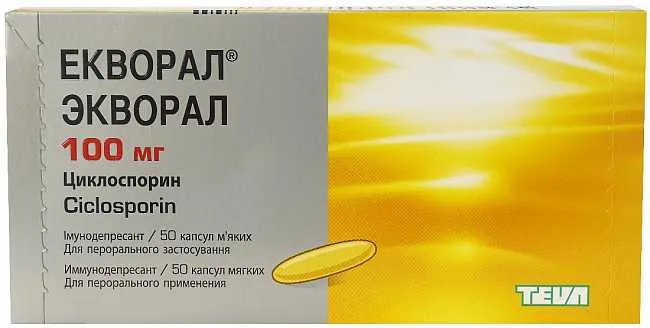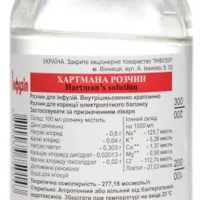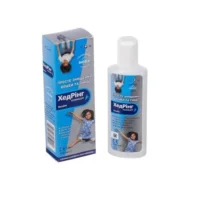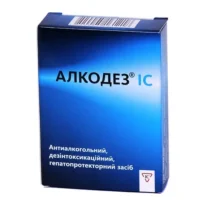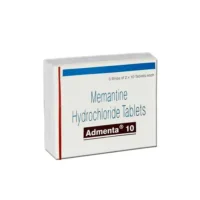Description
Ecvoral (Cyclosporine) Capsules 100 mg. №50
Composition
Active Ingredient: Cyclosporine 100 mg.
Mechanism of Action
Cyclosporine works by suppressing the immune system through the inhibition of interleukin-2 and other cytokines, thus preventing rejection of transplanted organs and reducing immune responses in autoimmune diseases.
Pharmacological Properties
Cyclosporine is a calcineurin inhibitor that modulates T-cell activity and inhibits the production of pro-inflammatory cytokines, exerting immunosuppressive effects.
Indications for Use
Indicated for: Ecvoral is recommended for preventing organ rejection in transplant recipients and managing autoimmune conditions such as rheumatoid arthritis and psoriasis.
Contraindications
Do not use Ecvoral if:
- You are allergic to cyclosporine or any other components of the product.
- You have uncontrolled high blood pressure.
- You are pregnant or breastfeeding.
Side Effects
Common side effects of Ecvoral may include hypertension, nephrotoxicity, tremor, and hypertrichosis. Monitoring of blood pressure, renal function, and liver enzymes is crucial during treatment.
Usage Instructions
Dosage: The typical recommended dose is 2 to 6 mg/kg/day administered in two divided doses. Take Ecvoral as directed by your healthcare provider, swallowing the capsules whole with a full glass of water.
Benefits Compared to Analogues
Ecvoral offers a more targeted immunosuppressive action with potentially fewer adverse effects on bone marrow and white blood cells compared to other immunosuppressants.
Suitable Patient Groups
Ecvoral is suitable for use in both adult and pediatric transplant patients as well as individuals with autoimmune diseases. Close monitoring is particularly important in elderly patients and those with compromised renal or hepatic function.
Storage and Shelf Life
Store Ecvoral capsules in a cool, dry place at controlled room temperature. Check the packaging for the expiration date and do not use the product beyond this date.
Packaging Description
Ecvoral is available in blister packs containing 50 capsules of 100 mg strength each.

